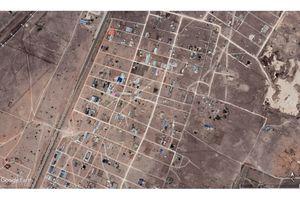Medical students shun fistula surgery as mothers suffer

File| NATION
Pumwani Maternity Hospital nurses stage a protest in March, demanding, better allowance. The number of students at the schools of medicine at the local universities specialising in fistula surgery is declining.
What you need to know:
- Horrific injuries in women reproductive systems leave them unable to control the flow of urine and faeces
Even as Kenya makes big strides in maternal care, the country still lacks trained and certified professional fistula surgeons.
(Fistula is an abnormal opening between one hollow organ and another, or between a hollow organ and the surface of the skin, caused by ulceration, congenital malformation, etc)
The horrific injuries in women reproductive systems leaves victims with the inability to control flow of urine and sometimes faeces, resulting in the emission of a foul smell.
Worse still, the number of students at the schools of medicine at the local universities specialising in this kind of study is declining.
South Africa
But what is worrying is that even those who finally graduate from the local university are moving to greener pastures in South Africa.
According to a leading fistula surgeon, Dr Hilary Mabeya, South Africa is recruiting most of these doctors in their research programme.
“At the moment the number of qualified professional fistula surgeons in Kenya stands at five and an equal number in internship,” said Dr Mabeya .
But why do those pursuing medicines at the local universities shun this field of study? According to Dr Mabeya most are not interested in this field as fistula tends to affect the poor in the rural areas who are not capable of paying the exorbitant doctors operation fees.
Pregnant women seeking antenatal care in private hospital are charged between Sh1,000 and Sh2,000 by doctors, which most pregnant women in the rural areas cannot afford.
Fistula is not treated free even in government hospitals. A simple Caesarean section in a government hospital is charged Sh3,000.
According to Dr Mabeya the government should consider providing free health services to poor women who suffer from disabilities caused by complications during child birth.
Dr Hilary Mabeya who is also a lecturer at Eldoret’s Moi University School of Medicine said free treatment would enable other women in to seek treatment.
“At least 3,000 women suffer from this humiliating condition each year caused by prolonged labour pains,” Dr Mabeya said.
He said this year, the number is likely to double as the number of women being admitted to the Moi Teaching and Referral Hospital in Eldoret is increasing.
So far at least 2,000 victims have been operated at the hospital. He said it was unfortunate that fistula operation is not offered free in government hospitals.
Dr Mabeya said there was an urgent need have a policy that would address the plight of post fistula operation patients.
“Most of the patients I have operated on have been facilitated by NGOs that pay for their medical fees,” Dr Mabeya added.
He said the government should waive the fees for such cases as most of the victims come from a poor background.
According to statistics approximately 14,700 women and girls die each year due to pregnancy related complications in Kenya.
The World Health Organisation says between 290,000 and 400,000 women and girls in Kenya suffer permanent disabilities caused by complications during pregnancy and child birth each year.
Some of the victims in Samburu and Turkana have sent out a passionate appeal to the government to economically empower them.
The victims said they were likely to be abused again if they go back to their community as they had not fully healed.
“We come from communities where women have no voice and we fear if we go back we are likely to suffer more injuries,” said a 19-year-old woman from Samburu.
The victims were speaking in Nakuru Town after undergoing a successful operation to repair their private parts at Moi Referral and Teaching Hospital in Eldoret. They suffered severe injury due to prolonged and obstructed labour pains.
The operation was facilitated by the Catholic Diocese of Nakuru Peer Counselling Programme.
According to the programme coordinator at the Diocese, Mr Vincent Omollo, many women in the semi arid and arid areas are suffering in silence as they have no means to access health facilities .
“Our clients are mostly from hardship areas, and cannot reach the hospital and by the time we access them, they are usually in bad shape,” said Mr Omollo.
According to Mr Jared Momanyi a project manager at Gynecology Fistula Care Centre in Eldoret, if the victims get pregnant before they are fully healed they will be required to undergo Caesarean section.
However, he said they were likely to jeopardise their chances of survival as they come from remote and poverty stricken counties where medical services are not easily accessible.
Dr Mabeya says that there is an urgent need to build a modern fistula training centre in Kenya to help cope with the increasing number of women particularly in marginalised areas.
“We need to act now before the situation gets worse as there is a huge gap between the management and research in fistula,” said Dr Mabeya.




